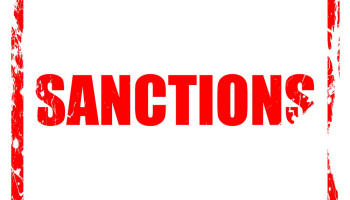Baku, Azerbaijan, August 4
By Leman Zeynalova – Trend:
The new sanctions imposed by the US on Iran might exacerbate the two countries’ relations, but will not be the basis for ending the nuclear deal, Carl Baker, Director of Programs, Pacific Forum at the Center for Strategic and International Studies (CSIS) based Washington, told Trend Aug.4.
“Iran has already articulated its view that it sees the recent US sanctions as a violation of the Iranian nuclear deal. From the US perspective, I think it sees the sanctions as a first step toward withdrawing from the deal,” he said. “The problem for the US is that it does not have the support of the other parties to the agreement, which means it will risk further isolation if it unilaterally withdraws. So ultimately, I think the sanctions might exacerbate US-Iran relations, but will not be the basis for ending the deal.”
Regarding the possibility of even closer relations between Russia, Iran and North Korea after facing sanctions from the US, the expert said he doesn’t think the bill itself will necessarily pave the way for a creation of a bloc comprised of these three countries.
“It is certainly true that the US through its actions have sought to punish each of these countries, but for different reasons. I do think there are other motivations for bilateral cooperation between these countries, but again not so much in response to the US but based on common interests that ultimately conflict with US interests,” noted Baker.
The expert believes that the primary basis for bilateral cooperation between Iran and Russia is the common interest in influencing the outcome of the war in Syria.
“While this interest does extend to economic cooperation, there are inherent limits to the level of economic cooperation based on the fact that both countries are heavily dependent on oil and gas exports,” he added.
On August 2 US President Donald Trump signed into law the legislation that levies new sanctions against Russia.
The new sanctions bill hits Russia's energy and defense sectors, and also includes fresh sanctions against Iran and North Korea.
Iran and the five permanent members of the United Nations Security Council - the United States, Britain, France, China and Russia - plus Germany signed the JCPOA on July 14, 2015 and started implementing it on January 16, 2016.
Under the agreement, limits were put on Iran’s nuclear activities in exchange for, among other things, the removal of all nuclear-related bans against the Islamic Republic.
The UN Security Council later unanimously endorsed a resolution that effectively turned the JCPOA into international law.
---
Follow the author on Twitter: @Lyaman_Zeyn






